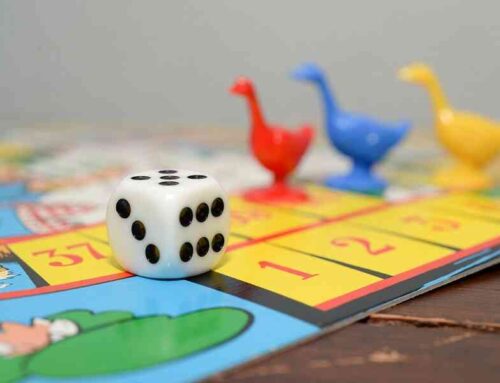Children develop social skills through listening, talking, reading, and interacting with others. Parents are responsible for providing the guidance and activities to ensure kids experience these interactions. The books included in this list are great resources to support parents in that regard. They offer tips, tactics, and exercises specifically designed to help kids understand their feelings, make friends, and learn about social norms.
Order a book from the Recommended for Your Children section and read it with your kids. Together, you will find ways to manage anger, sadness, frustration and other emotions. We have also included a short list of selected books for parents. These practical guides present science-backed research in easy-to-read, relatable ways to help parents help their children.
Me and My Feelings: A Kids’ Guide to Understanding and Expressing Themselves
by Vanessa Green Allen
About Me and My Feelings. This guide helps kids recognize and understand what they are feeling. There are many easy-to-understand explanations as well as quizzes, activities, and other fun exercises within the book that collectively help kids develop their own way to express themselves and have empathy for others. Appropriate for age 6+.
Reviews. Parents rave about how this book helped their children learn to express what they are feeling. The language and activities are appropriate and engaging. The tips and tricks help children manage their feelings of anger or frustration. Reviewers suggest parents read the book aloud with their kids; it’s a great tool to spark conversation and gain insight into what is happening during the children’s day.
Social Skills Activities For Kids
by Natasha Daniels
About Social Skills Activities For Kids. This workbook is filled with 50 exercises, games, and activities that help kids learn how to make friends, talk and listen, and understand social rules. The book addresses current real-life situations, including school bullying and social media.
Reviews. Parents recommend this book as a tool to teach appropriate social skills to children. The activities and self-reflection help kids think about how certain actions may have an effect on others. Parents and grandparents use the games and activities as a way to talk about how the kids are feeling. It’s a valuable way to develop open communication and helps a child learn how to express themself.
What Should Danny Do? The Power to Choose Series
by Adir Levy
About Danny and the Power to Choose. This is a fun, interactive book for kids who get to decide the fate of the main character, Danny. With nine stories in one book, kids are empowered to choose which path Danny takes throughout his day. The choices determine how Danny’s day will pan out. Appropriate for age 6+.
Reviews. Kids really enjoy this book. It’s fun to read again and again. While these books are more about the entertainment than the lesson, there are underlying lessons. Young readers learn that poor decisions, such as lying or ignoring responsibilities, lead to negative consequences. The books deal with real life situations for kids and help them think about how to react in many social settings.
I Got This! Teach Kids They Can Handle Everything
by Steve Herman
About The My Dragon Books. For your youngest children, this book series is filled with fun, colorful illustrations and cute stories that teach children about their emotions and feelings. Main character Drew is a young boy who teaches his dragon, Diggory Doo, how to handle common daily challenges. Throughout the different books, Diggory Do learns to share, love himself, and accept being told “No”.
Reviews. Parents love this book for the cute characters and the important life lessons. The stories are well written and age appropriate to help kids understand life skills, from responsibility to telling the truth to being respectful. Parents, grandparents and teachers recommend the series for young children, age 4+.
Raising Worry-Free Girls: Helping Your Daughter Feel Braver, Stronger, and Smarter
by Sissy Goff
About Raising Worry-Free Girls. This book addresses age-specific issues for girls. It’s designed to help parents and their children understand why a girl’s brain turns to worry, and provides practical guidance for how to cope. Appropriate for middle school age students and older.
Reviews. Reviewers comment on the practicality of the book. It offers relatable examples and useful tips and actions to help girls manage anxiety and worry. The book conveys clinical points of view in ways that are easy to digest. The examples are relatable to real life situations and help parents understand what their daughters are experiencing at school, with friends, and when thinking about their future.
Raising Emotionally Strong Boys: Tools Your Son Can Build On For Life
by David Thomas
About Raising Emotionally Strong Boys. This book is designed to help parents, teachers, and grandparents understand the emotional challenges that boys experience. Learn to help boys manage anger, anxiety, depression and frustration. Teach them to be aware, resourceful, resilient and empathetic.
Reviews. Parents of boys comment that this book provides practical tips, is relatable and offers easy-to-follow recommendations. It’s a helpful resource to understand the inner workings and feelings of young boys. And when you’re able to understand what a child is going through, it’s easier to communicate, support and teach them how to handle life’s challenges.
Untangled: Guiding Teenage Girls Through the Seven Transitions into Adulthood
by Lisa Damour
About Untangled. Learn how to engage with your daughter in constructive ways. An award-winning guide to the behavior of teenage girls, this book explains what is going on with young girls and helps parents prepare for real life situations. Untangled offers parents a framework for understanding the anxiety, social stress, emotional changes, and other developmental transitions their daughter experiences.
Reviews. Untangled is filled with advice backed by scientific research, but is easy to read. The social and emotional development stages of young girls is presented in a way that helps parents better understand their teenage daughters. Many parents comment that they learned how to recognize what their children were going through, which words to say to make a difference, and how to maintain a close relationship with their children.
The Umbrella Effect: Your Guide to Raising Strong, Adaptable Kids in a Stressful World
by Dr. Jen Forristal
About The Umbrella Effect. A step-by-step guide to explain what kids need as they learn to navigate life’s challenges. This guide cuts through the noise so parents can get a clear picture of what their children are going through, areas where they are thriving, and what they need in order to cope and be successful in the next stage of their childhood.
Reviews. Parents appreciate the conversational writing style that makes the advice simple to put into practice. This is a practical guide that helps parents support their children through open conversation and with empathy. Reviewers like the practical tips and the framework used to present great parenting tips and advice.















Leave A Comment